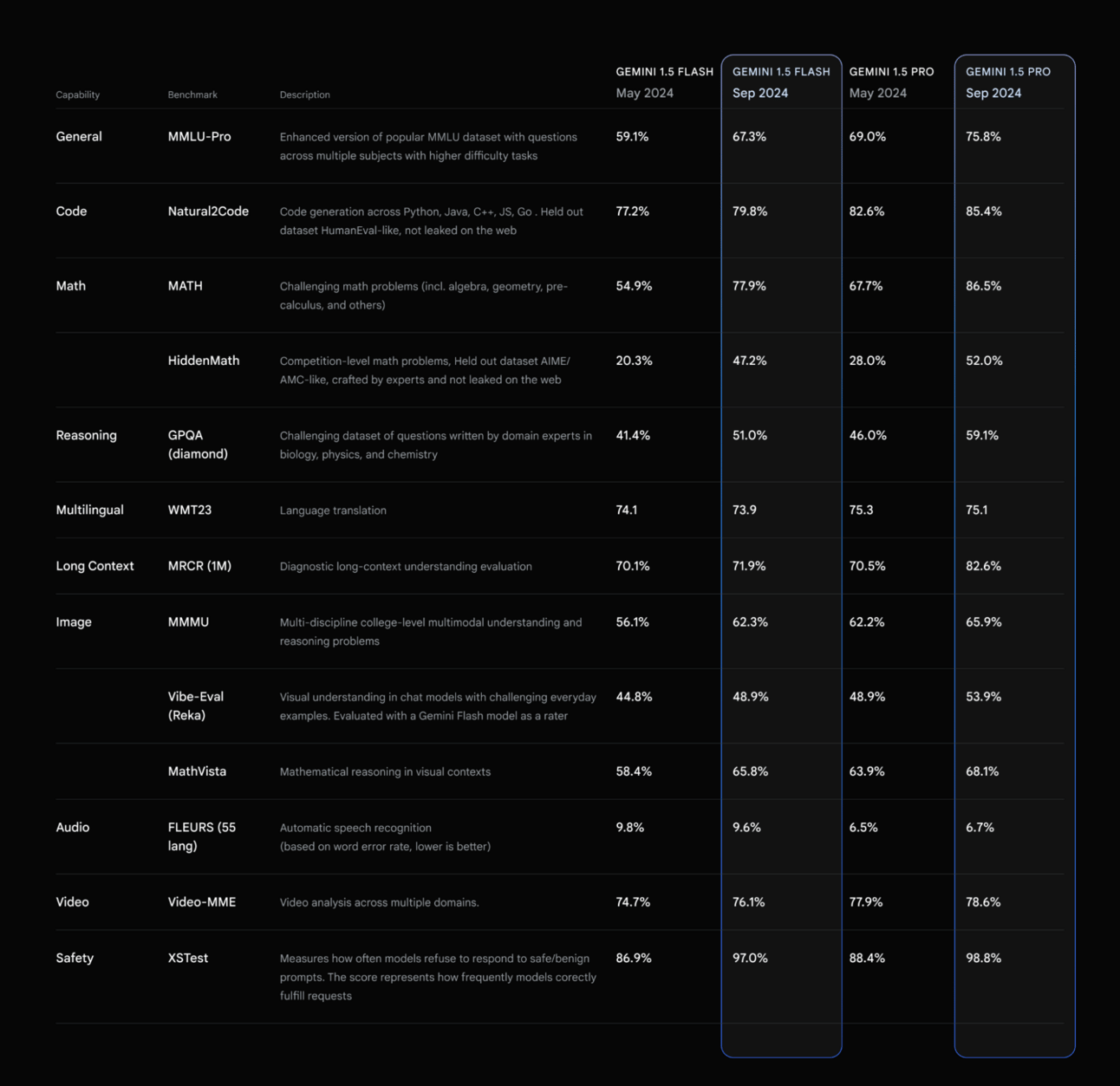
Welcome, AI enthusiasts
OpenAI has just rolled out a fresh update for ChatGPT, making conversations smoother than ever with improved voice features and a sleek new audio interface. Meanwhile, Google introduces the Gemini 1.5 models - delivering faster, more powerful AI at a lower cost. Microsoft also steps into the spotlight with “Correction,” a tool designed to fix AI mistakes using trusted sources. However, experts advise caution when depending on it. Let’s dive in! 🤖
In today’s insights:
OpenAI launches Advanced Voice Mode
Google's new Gemini AI models
Microsoft claims new tool fixes AI hallucinations
Read time: 3 minutes
🗞 LATEST DEVELOPMENTS
OPENAI
🗣️ OpenAI launches Advanced Voice Mode
Evolving AI: OpenAI's latest update brings a more natural conversation experience to ChatGPT, with enhanced voice features and a new look for its audio interface.
Key Points:
Advanced Voice Mode (AVM) launches for ChatGPT Plus and Teams customers.
Five new voices introduced, bringing the total to nine.
AVM now features a revamped design with a blue animated sphere.
Details:
OpenAI's AVM rollout brings its voice capabilities to more paying users in ChatGPT's Plus and Teams tiers; other users, like Enterprise and Edu, get access soon. The update includes five new voices: Arbor, Maple, Sol, Spruce, and Vale, expanding ChatGPT’s voice offerings. The visual update replaces the old animated dots with a blue animated sphere, making interaction more intuitive. A notable omission is Sky, a voice pulled due to a legal issue after its similarity to Scarlett Johansson's voice sparked controversy.
Why It Matters:
With this update, ChatGPT takes a step closer to a more human-like conversational interface, setting it apart in AI development. Its evolving voice technology could redefine user interaction with AI - bringing it into more natural and everyday contexts.
GOOGLE
🚀 Google's new Gemini AI models
Evolving AI: Google has unveiled the latest Gemini 1.5 models, delivering faster, more powerful AI solutions at reduced costs.
Key Points:
New Gemini-1.5 models boast performance gains in math, visual, and code tasks.
Input/output costs cut by over 50%, with increased rate limits and lower latency.
Gemini models now offer enhanced precision, content safety, and developer feedback integration.
Details:
Google's updated Gemini-1.5-Pro-002 and Gemini-1.5-Flash-002 models deliver major performance boosts, especially in math—up 20% in key benchmarks—and visual tasks, improving by 2-7%. Prices for tokens dropped by over 50%, reducing costs for developers. These models aim for precise, safer responses. Access is available via Google AI Studio, API, and Vertex AI; a chat-optimized version is on the way.
Why it Matters:
This release sharpens Google’s competitive edge in the AI landscape. With lower costs and better performance, Gemini 1.5 makes advanced AI more accessible, driving faster innovation across industries.
Evolving AI: Microsoft introduces "Correction," a tool designed to revise AI-generated errors by grounding them in reliable sources. However, experts suggest caution in relying on this feature.
Key Points:
Microsoft launches Correction to flag and fact-check AI errors using grounding documents.
Experts doubt the solution fully resolves AI's hallucination problem.
There are concerns that users may be lulled into false security by this tool's limitations.
Microsoft's AI ambitions are under pressure amid rising costs and skeptical early adopters.
Details:
Microsoft's Correction tool aims to fix AI's notorious tendency to hallucinate - fabricating facts in generated text. By cross-referencing outputs with verified documents, it flags and rewrites possible inaccuracies. However, experts like Os Keyes argue this approach only scratches the surface, as hallucination is an inherent feature of how AI models predict words, not knowledge-based responses. This creates a risk of over-reliance, as even Microsoft's Correction tool could potentially make mistakes, misleading users into believing outputs are more accurate than they actually are.
The Relevance:
While Microsoft’s tool may reduce errors, it doesn’t address deeper systemic flaws in AI models. This incomplete solution may give businesses a false sense of reliability, compounding the broader risks of premature AI deployment.
🎯SNAPSHOTS
Direct links to relevant AI articles.
🎓 OpenAI launches Academy to boost global AI development
🎶 Spotify expands its AI Playlist Tool to the U.S. and Canada
🖥️ Intel launches new chips to boost AI performance
☢️ U.S. nuclear plants won't immediately fuel Big Tech's AI ambitions


